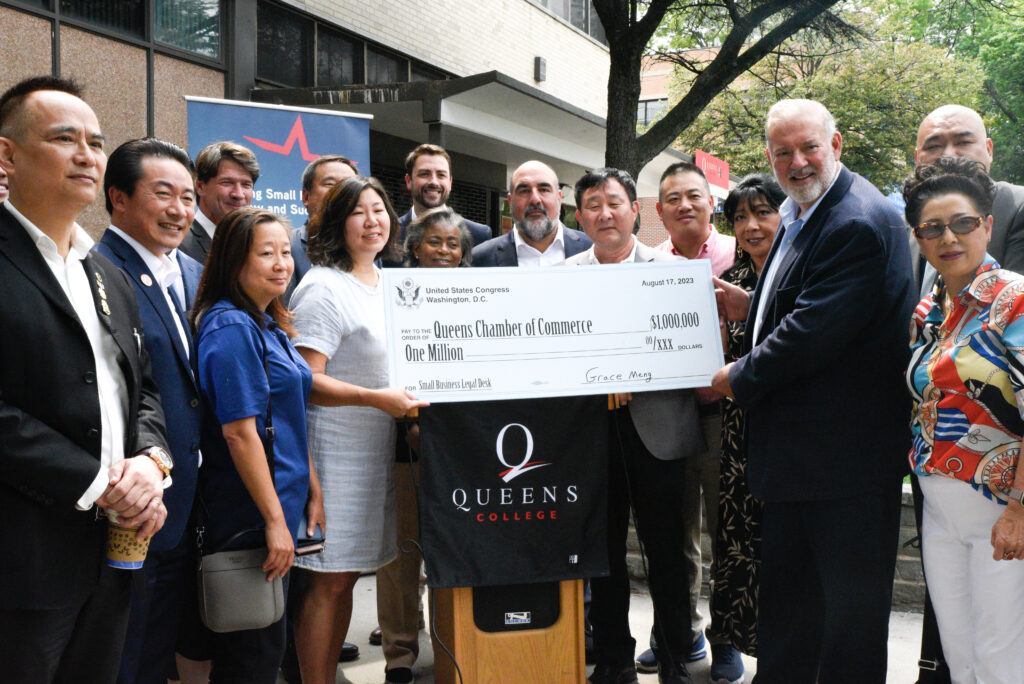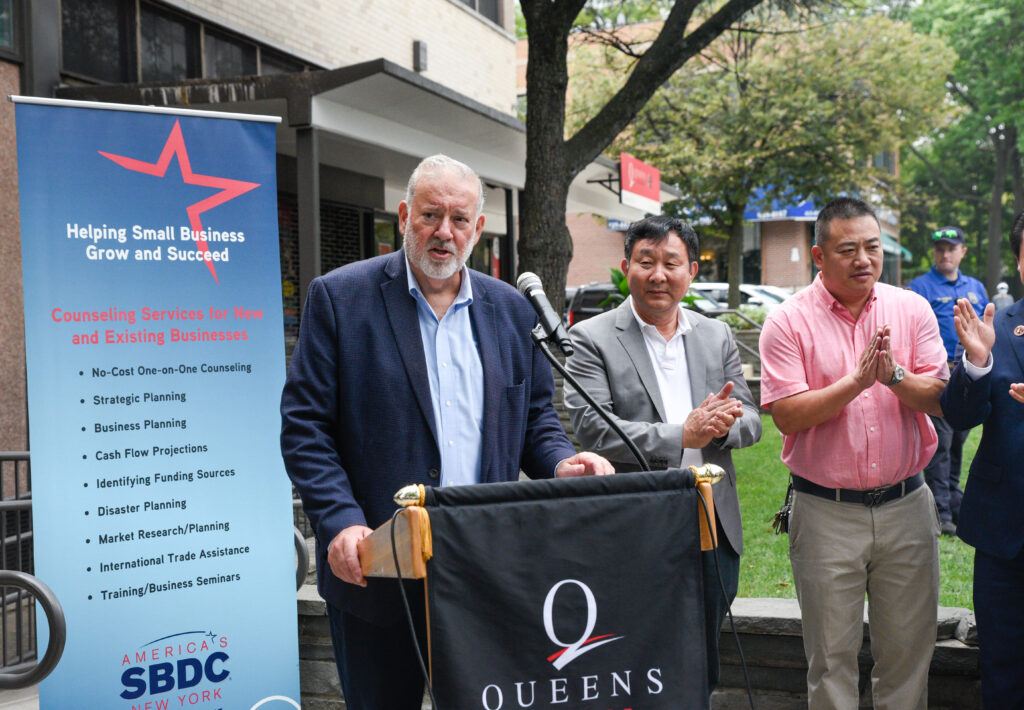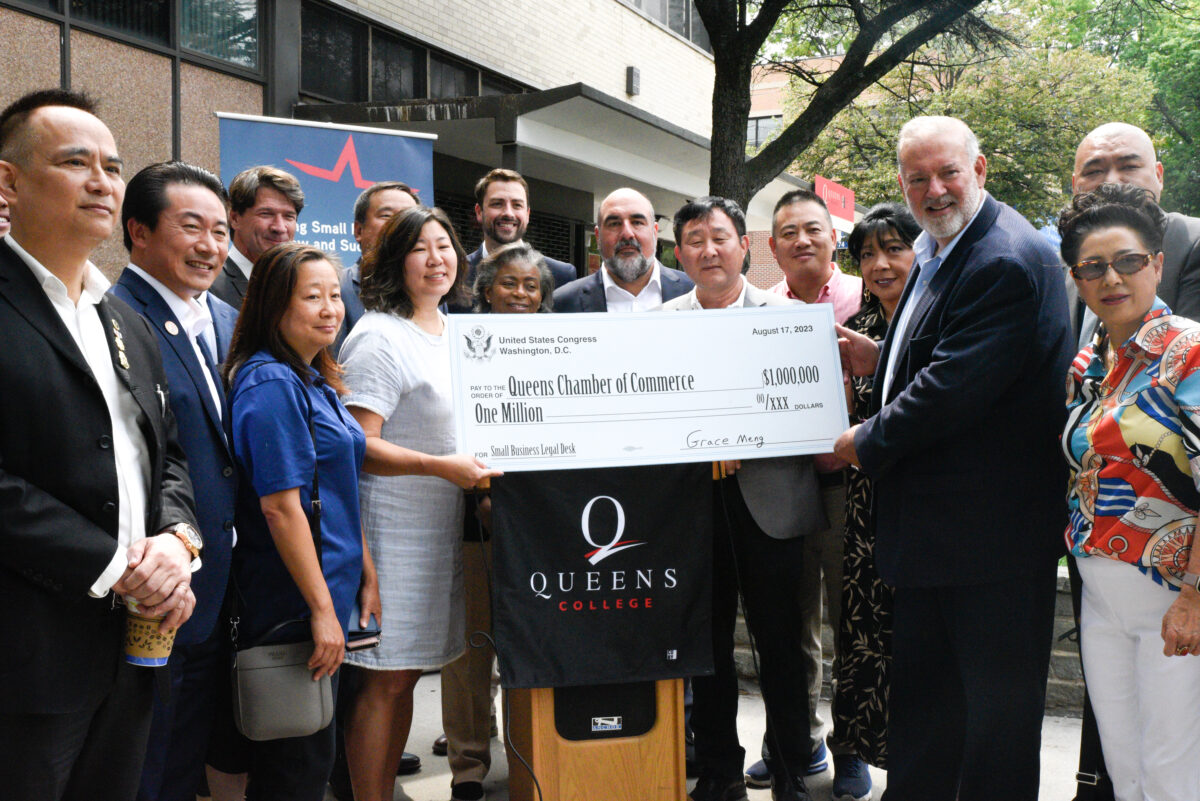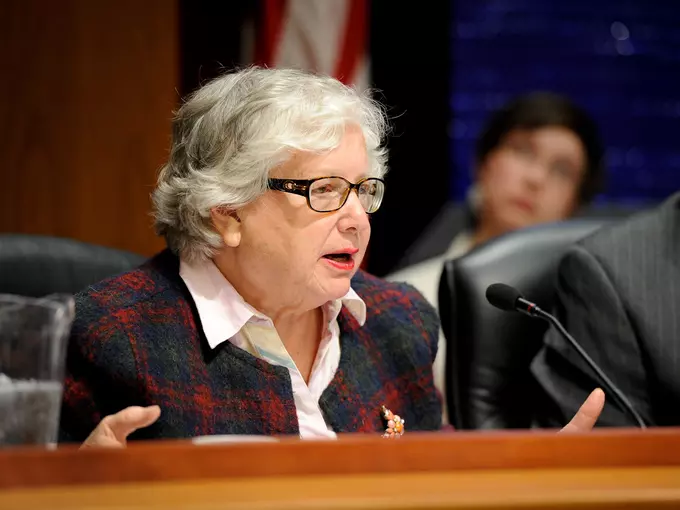Meng Awards 1 Million for Small Business Legal Desk

Congresswoman Grace Meng allocated one million dollars for the Queens Chamber of Commerce to start a Small Business Legal Desk. Photo by Iryna Shkurhan
By Iryna Shkurhan | ishkurhan@queensledger.com
Small businesses in Queens will soon have access to free legal advice in five different languages through a new pilot program spearheaded by the Queens Chamber of Commerce.
Congresswoman Grace Meng, who represents much of the borough, awarded the Chamber with a check for $1 million outside the Small Business Development Center at Queens College in Flushing.
“This will consist of pro-bono, professional support to help small businesses avoid costly issues and mistakes that could impact the force and the strength of our workforce,” said Meng at the event on Thursday. “It will especially help small immigrant owned small businesses and link the small business community that I’m proud to represent.”
She also pointed out that when business owners run into legal hurdles, they may not know exactly where to turn. Without resources to have a lawyer on retainer, or prior experience dealing with legal issues, they can fall victim to scams and end up in a worse situation than before.
With the funding, the chamber will bring aboard lawyers, accountants and human resources professionals who can advise business owners in times of need, and in multiple languages – Mandarin, Korean, Bengali, Russian, and Spanish.
Tom Gretch, President and CEO of the Queens Chamber of Commerce, recounted that during the pandemic, many business owners lost out on available government assistance, such as the Paycheck Protection Program loan, due to language barriers and a lack of expert advice.
“We see the importance, especially in places like downtown Flushing, and other areas of Congresswoman Meng’s district, the importance of outreach, which is why we have people that speak different languages on staff,” said Gretch, who noted that Asian-American communities are growing in size and influence, both locally and across the nation as indicated by the 2020 Census count.

Queens Chamber of Commerce President and CEO Tom Gretch applauded the initiative. Photo by Iryna Shkurhan
The Queens Chamber of Commerce represents over 1,400 businesses that employ over 150,000 Queens based employees in a range of industries.
As the daughter of small business owners, who went from working in one of Flushing’s first Chinese restaurants to owning their own, Congresswoman Meng says the cause is personal.
“They are helping to create jobs, they are helping to provide much needed services and goods that otherwise we would lack in our local neighborhoods,” said Meng. “And they provide a source of comfort.”
The Chamber is not the only group helping business owners take off, and stay afloat, in the borough. Several speakers at the event pointed out that the Small Business Development Center has been a key supporter of entrepreneurs and small businesses owners for over two decades.
Since 2001, advisors at SBDC have worked with close to 8,000 businesses, and helped invest over $100 million in the local economy, according to their website. They help business owners navigate a range of actionable steps, including setting up a business plan, marketing, securing funding, exports goods and adhering to regulations.
“This is news that’s important not only for the Chamber of Commerce, but for everyone who lives and works in the world’s borough,” said Frank H. Wu, President of Queens College, at the gathering. “Small businesses are the lifeblood of this community.”





